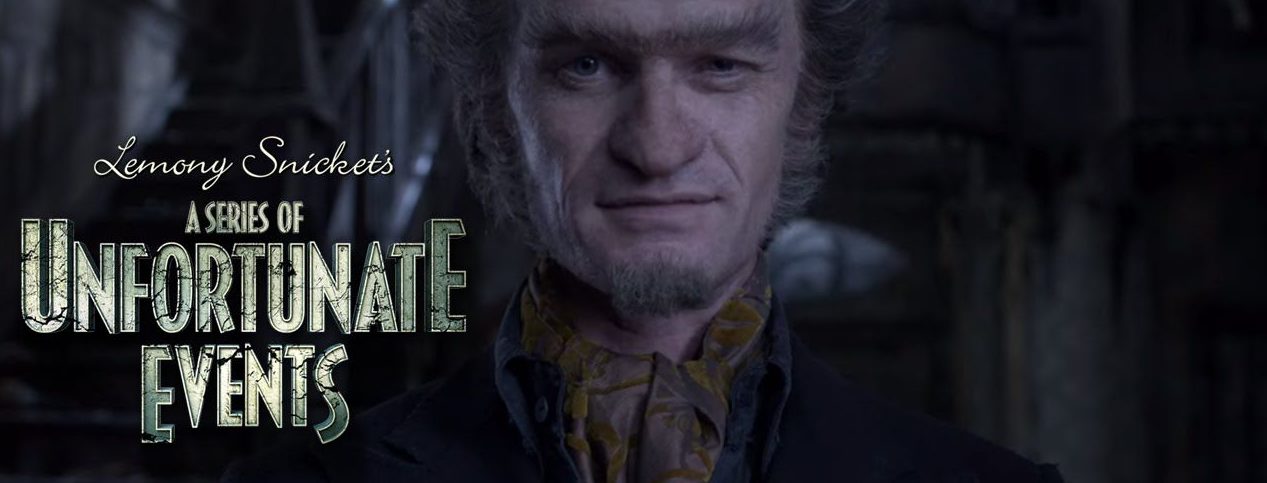A Series of Unfortunate Events season 3 review
There is always a danger which comes with adapting beloved children’s books for the screen. Yet aided by author Daniel Handler (writing under the pseudonym Lemony Snicket), the Netflix adaption of A Series of Unfortunate Events conjures up the familiar mystery, melancholy and moral dilemmas of the bestselling books.
For those previously unacquainted, these 13 books chronicles the lives of orphans Violet, Klaus and Sunny Baudelaire. They are chased from a series of incompetent guardians by the absurdly sinister Count Olaf, who is after their fortune. As his disguises become more ludicrous, and their lives are put in increasing peril, the Baudelaire orphans are thrust into the midst of an elaborate schism. A phrase which here means encountering hidden headquarters, buried secrets and “The Incomplete History of Secret Organisations” – as one side of the Volunteer Fire Department (VFD) starts fires, and the other side puts them out.
The medium of television does not leave many secrets to the imagination, and the concept that questions only lead to more questions is perhaps better executed in the pages of the books
The final series picks up as Violet and Klaus are hurtling towards a cliff edge in a caravan, whilst their baby sister is held captive by their arch-nemesis. The scenery shifts from submarines to grand hotels to castaway islands as the final four books are adapted. In the past two seasons, it occasionally felt like the source material was stretched. The recurring plot of Olaf outfoxing hapless guardians, whilst the children barely manage to wriggle out of his clutches through their own ingenuity, starts to wear thin.
By contrast, season 3 feels more concise and tightly plotted. As the Baudelaires attempt to piece together the mysteries that have haunted their lives, many questions are answered. Not all the secrets pay out. As an avid reader of the books, the contents of the sugar bowl remained unanswered. The reveal here seems slightly unnecessary. The medium of television does not leave many secrets to the imagination, and the concept that questions only lead to more questions is perhaps better executed in the pages of the books.
Yet the attention to detail is beautifully rendered, from the “Look Away” theme tune to the melancholy preamble which Lemony Snicket writes his damned tale. The “wrong” which chimed in the hotel lobby was wonderfully crafted, as is the humorous insertions of Sunny Baudelaire as she learns to speak. Lucy Punch as Esme Squalor remains the perfect cocktail of beauty and terror. Allison Williams as Kit Snicket is a welcome addition. The Man with Beard and No Hair and The Woman with Hair and No Beard were deliciously cast. There is a beautifully shot scene where the two nefarious baddies chink glasses as they watch fire spreading across the city. It illustrates the fact that Olaf is not the master villain, but a small cog in a relentless terrible machine.
…the attention to detail is beautifully rendered…
The final seven episodes are notably darker. It expands upon themes that adults aren’t always right, good doesn’t always prevail, and the lines between right and wrong prove harder to decipher than the VFD’s literary codes. These themes culminate in Olaf’s trial scene in the Hotel Denouement. The orphans share their tales of misery and woe to the court, and for the briefest instance, there is hope that justice will be served. Yet as Lemony Snicket often laments, if you have come for a fairy tale, you are looking in the wrong place. Two of the judges are revealed to be villainous and the trial is rendered a sham. With heavy-handed metaphor, the idea that “justice is blind” is encapsulated by noble and evil volunteers running around in blindfolds, ignoring the Baudelaires’ warning that the hotel is on fire.
Aptly titled the End, the final episode is the pick of the bunch. Having burnt the “Last Safe Place” down, the orphans and Count Olaf are cast out to sea. All his scheming is stripped bare, and his henchmen and fiendishly fashionable girlfriend have deserted him. Upon arrival to an inhabited island, old secrets are revealed, truths about the Baudelaire parents come to light and the antidotes to a certain Medusoid Mycelium.
It is a beautifully stylised and faithful adaption, offering a fitting conclusion to one of Netflix’s most underrated original series
In a fatal confrontation, the deadly fungus is exposed. Kit Snicket, heavily pregnant atop a raft of library books, is brought to shore by Count Olaf. In his last noble act, Olaf poignantly recites from Larkin’s “This Be the Verse”. As Kit says, this act does not redeem him. But it gives the viewers a glimpse of the pain beyond his villainy. In a role often marked by exaggerated farce, the vulnerability Neil Patrick Harris brings to the scene is mesmerising. It winds up the conclusion that good people can commit wicked acts, and wicked people are capable of small acts of goodness.
Some endings are tied up. The fates of the Quagmires and Kit’s surviving daughter, Beatrice II, are given more closure than the ominous endings intimated in the books. Yet beyond the mayhem and the mystery, this very fascinating drama captures the spirit of the books. It is a celebration of language, an advocacy of science and invention, an ode to art and poetry and opera and the people that peruse them. It is a beautifully stylised and faithful adaption, offering a fitting conclusion to one of Netflix’s most underrated original series.
Final rating: 4 stars.

Comments
Comments are closed here.